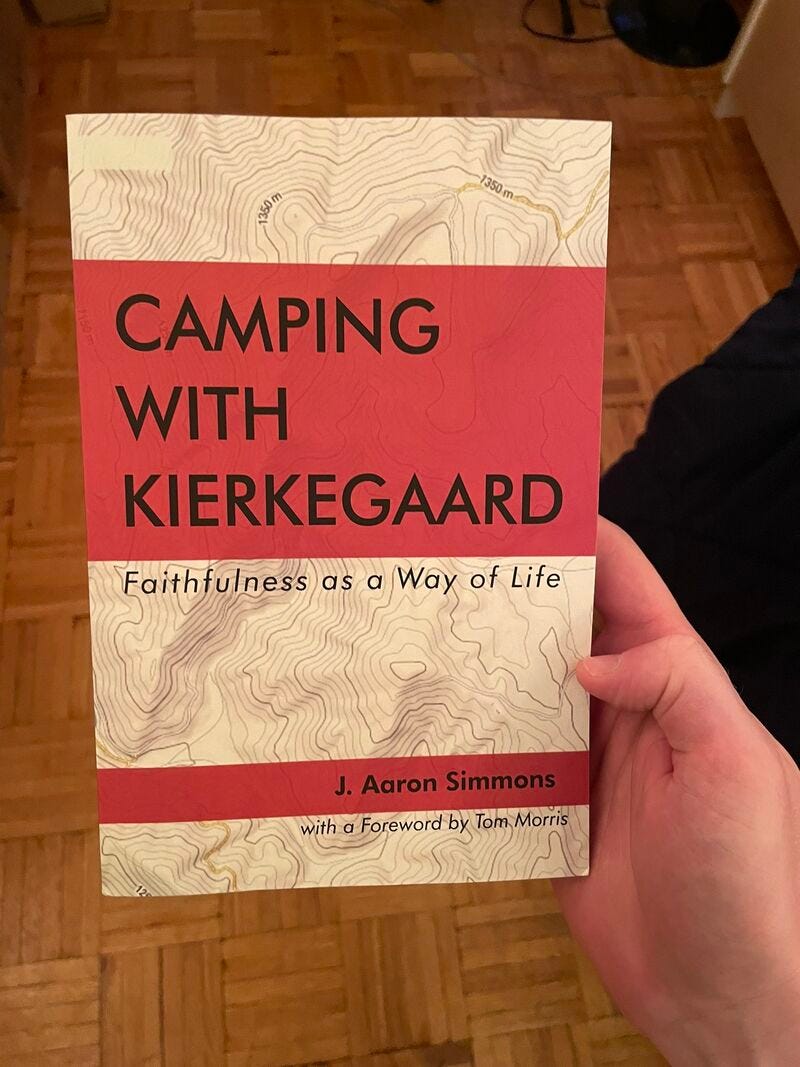Aaron Simons sat down for another conversation on philosophy as a way of life. Aaron is the Professor of Philosophy at Furman University and his new book is Camping with Kierkegaard.
Check out his YouTube channel: PHILOSOPHY FOR WHERE WE FIND OURSELVES
Please visit his website and get signed up for my monthly newsletter:
https://jaaronsimmons.com/
Summary
In this conversation, J. Aaron Simmons discusses his book 'Camping with Kierkegaard' and explores the intersection of philosophy, faith, and the outdoors. He shares personal stories of his connection to nature and how it has shaped his identity. Simmons emphasizes the importance of embracing our finitude and living a faithful life that is not defined by accomplishments or success. He discusses the role of stories in conveying truth and the virtues of humility, hospitality, and gratitude. Simmons also reflects on the challenges of leadership and the potential of democracy when grounded in existential ethics. The conversation explores the connection between the outdoors and spirituality, highlighting the transformative power of nature. It emphasizes the importance of taking the time to appreciate and connect with the natural world. The conversation also delves into the role of the outdoors in theological reflection and how it can inspire deep philosophical discussions.
Takeaways
Embrace the outdoors as a space for reflection, worship, and connection to the natural world.
Live a faithful life that is not defined by accomplishments or success, but by embodying virtues such as humility, hospitality, and gratitude.
Recognize the power of stories in conveying truth and shaping our understanding of the world.
Reject the idolatry of success and accomplishments, and instead focus on living a meaningful and purposeful life.
Leaders should model humility, listen to others, and prioritize the well-being of the community over personal gain.
Understand the potential of democracy when grounded in existential ethics, which emphasize the dignity and value of every individual. Nature can be a source of spiritual inspiration and transformation.
Taking the time to connect with the outdoors can bring a sense of peace and fulfillment.
The outdoors can serve as a setting for theological reflection and philosophical discussions.
Engaging with nature can deepen our understanding of ourselves and the world around us.
Chapters
00:00Introduction and Personal Connection to the Outdoors
03:26The Significance of Finitude
08:19The Mountains as a Space for Worship and Reflection
10:11Living a Faithful Life
13:16The Importance of Stories in Conveying Truth
16:45Living Life as a Story
21:59Existential Ethics: Humility, Hospitality, and Gratitude
23:11Rejecting the Idolatry of Success and Accomplishments
27:42The Role of Leaders in Society
33:18The Intersection of Existentialism and Democracy
45:13The Problem of Asshole Leadership
56:38Invitation to Build Community and Find Calling
59:57Appreciation for the God Pods Community
01:00:22Exploring the Outdoors as a Spiritual Experience
01:00:52The Outdoors as a Setting for Theological Reflection















Share this post